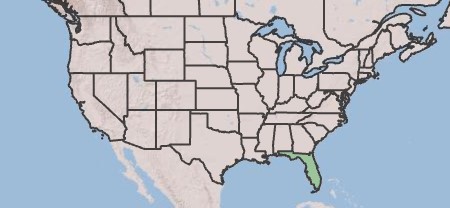Difference between revisions of "Berlandiera subacaulis"
ParkerRoth (talk | contribs) (→Description) |
|||
| Line 22: | Line 22: | ||
==Description== | ==Description== | ||
<!-- Basic life history facts such as annual/perennial, monoecious/dioecious, root morphology, seed type, etc. --> | <!-- Basic life history facts such as annual/perennial, monoecious/dioecious, root morphology, seed type, etc. --> | ||
| + | |||
| + | According to Diaz-Torbio and Putz (2021), ''Berlandiera subacaulis'' has taproots with a below-ground to above-ground biomass ratio of 5.50 and nonstructural carbohydrate concentration of 73 mg g<sup>-1</sup>.<ref>Diaz-Torbio, M. H. and F. E. Putz. 2021. Underground carbohydrate stores and storage organs in fire-maintained longleaf pine savannas in Florida, USA. American Journal of Botany 108(3):432-422.</ref> | ||
==Distribution== | ==Distribution== | ||
Latest revision as of 14:25, 2 July 2024
| Berlandiera subacaulis | |
|---|---|
| Scientific classification | |
| Kingdom: | Plantae |
| Division: | Magnoliophyta - Flowering plants |
| Class: | Magnoliopsida - Dicots |
| Order: | Asterales |
| Family: | Asteraceae |
| Genus: | Berlandiera |
| Species: | B. subacaulis |
| Binomial name | |
| Berlandiera subacaulis (Nutt.) Nutt. | |

| |
| Natural range of Berlandiera subacaulis from USDA NRCS Plants Database. | |
Common name: Florida greeneyes
Contents
Taxonomic Notes
Synonyms:
Description
According to Diaz-Torbio and Putz (2021), Berlandiera subacaulis has taproots with a below-ground to above-ground biomass ratio of 5.50 and nonstructural carbohydrate concentration of 73 mg g-1.[1]
Distribution
Ecology
Conservation, cultivation, and restoration
Cultural use
Photo Gallery
References and notes
- ↑ Diaz-Torbio, M. H. and F. E. Putz. 2021. Underground carbohydrate stores and storage organs in fire-maintained longleaf pine savannas in Florida, USA. American Journal of Botany 108(3):432-422.